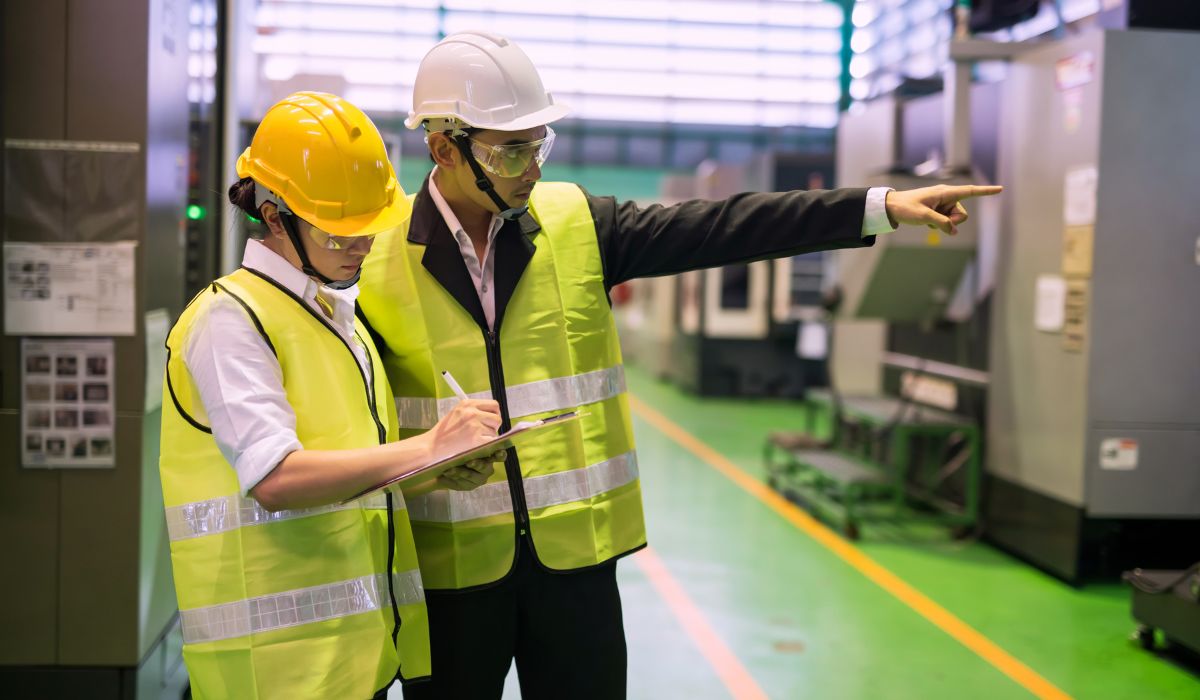In the bustling industry landscape of Malaysia, companies often find themselves at a crossroads between advancing their operations and ensuring safety and environmental compliance. Here, the expertise of Health, Safety, and Environmental (HSE) consultants becomes indispensable. While many organizations strive to navigate the complex web of regulatory requirements on their own, the nuanced role of HSE consultants in crafting robust emergency preparedness strategies cannot be overstated. Their specialized knowledge not only safeguards against potential hazards but also fortifies companies’ resilience in the face of unforeseen disasters.
Understanding HSE Consultancy in Malaysia
Role of CSPs
Certified Safety Professionals (CSP) play a crucial role in Malaysian companies. They bring advanced expertise in identifying workplace hazards and implementing safety measures. Their involvement ensures that internal HSE resources are optimized. CSPs work closely with management to develop comprehensive safety protocols.
They also guide on the latest HSE regulations, ensuring companies comply. This collaboration is essential for maintaining a safe work environment.
CIH Expertise
Certified Industrial Hygienists (CIH) focus on controlling environmental factors. These can affect workers’ health adversely. CIHs assess air quality, noise levels, and chemical exposures. Their assessments are critical for industries where employees face high risks from hazardous substances.
CIHs provide actionable insights to mitigate health risks. Their preventive measures protect employees’ well-being.
Observation and Interviewing
Observation and interviewing are key techniques used by HSE consultants. Through these methods, they gain a deep understanding of a company’s processes. This allows them to identify potential risks accurately.
Consultants observe operations firsthand and interview staff at all levels. This comprehensive approach ensures no detail is overlooked in risk assessment.
Joint Responsibility
Ensuring the safety and health of HSE consultants is a shared duty. Both employers and host/client companies must create safe working conditions for these professionals. This includes providing necessary information and access to perform their tasks effectively.
This collaboration fosters a culture of safety across the organization. It highlights the importance of everyone’s role in emergency preparedness.
Developing Emergency Response Plans
Training Requirements
HSE consultants emphasize the importance of site-specific training. This training is crucial for developing effective emergency response plans. They ensure that all employees receive the appropriate training to handle potential hazards.
Clients provide this training. It covers occasional exposures and standard operations within the workplace. The goal is to prepare every team member for emergency situations.
Hazard Identification
Identifying potential hazards is a key step in tailoring emergency plans. HSE consultants use their experience and knowledge to spot these risks. They consider factors like chemical exposures and electric risks.
This process ensures that emergency plans meet OSHA standards. It’s about creating a safe work environment for everyone.
Industry-Specific Strategies
Integrating industry-specific requirements into emergency strategies is essential. For example, the General Industry sector has different needs than Construction or Shipyard Employment.
HSE consultants work with companies to develop plans that reflect these unique requirements. They consider the specific types of exposures and the nature of the work being done. This approach ensures that emergency response plans are both effective and compliant with regulations.
Implementing Safety Management Systems
Safety Certification
Certified safety professionals play a pivotal role in guiding companies through the maze of safety regulations. They ensure that safety management systems not only meet but exceed the standards set by occupational safety and health administrations. Through their expertise, businesses achieve safety management systems certification, which is a testament to their commitment to maintaining a safe work environment.
They focus on integrating comprehensive safety measures into every aspect of the workplace. This involves developing specific HSE policies that cater to the unique needs of each company, including hot works safety management considerations and managing contractor HSE effectively.
Training Programs
Continuous training is essential for HSE consultants to keep abreast of the latest in safety management practices and regulations. These programs equip them with the knowledge to implement cutting-edge safety standards and enforce safe work practices rigorously.
By staying updated, consultants can adapt to new safety challenges swiftly, ensuring that the companies they assist are always ahead in maintaining a safe working environment. This dedication to ongoing education underscores the importance of expertise in achieving workplace safety.
Conducting Risk and Safety Audits
Hazard Identification
HSE consultants begin by identifying potential hazards in the workplace. This includes conducting a job hazard analysis to pinpoint areas where employees might be at risk. They examine various factors, such as electrical safety and noise levels, to ensure all potential dangers are accounted for.
They meticulously assess each department, noting any unsafe conditions or practices. This thorough examination helps in creating a safer work environment for everyone involved.
Risk Assessment
Once hazards are identified, HSE consultants perform a detailed risk assessment. They evaluate the severity and likelihood of each hazard leading to an incident. This process is crucial in prioritizing which risks need immediate attention.
Certified industrial hygienists often lead this part of the audit. They use their expertise to accurately assess the risks associated with identified hazards. Their findings play a significant role in developing effective safety protocols.
Safety Protocol Improvement
The insights gained from risk and safety audits are used to enhance existing safety measures. HSE consultants work closely with the company’s directorate to implement changes that will mitigate workplace hazards.
By addressing the identified risks, companies can significantly reduce the chances of accidents occurring. This proactive approach ensures a safer working environment for all employees.
Ongoing Training
Continuous education is vital for HSE consultants. It enables them to stay updated on the latest safety standards and auditing techniques. With ongoing training, they can effectively conduct audits across various industries, ensuring that safety protocols meet the highest standards.
Ensuring Business Continuity
Emergency Preparedness
Emergency preparedness is crucial for business continuity. HSE consultants play a vital role in this process. They offer guidance on developing comprehensive emergency response plans. These plans help companies prepare for unexpected events.
Consultants ensure that these strategies are in place. They focus on minimizing disruptions to operations. This preparation safeguards both the company’s future and its employees’ well-being.
Safety Management
A robust safety management system is essential. It helps identify potential risks before they escalate into emergencies. HSE consultants work closely with employers to tailor these systems to the company’s specific needs.
They monitor compliance with environmental, safety, and health (ES&H) requirements. Consultants also provide ongoing support and information to improve workplace safety. This proactive approach is key to maintaining operations during crises.
Best Practices Guidance
HSE consultants offer valuable insights into best practices for emergency preparedness. Their expertise assists companies in navigating complex regulations and industry standards. They advise on the most effective processes to ensure employee safety and operational resilience.
Their guidance extends beyond regulatory compliance. It encompasses practical measures that enhance overall facility safety. By doing so, consultants help companies protect their clients, employees, and assets during unforeseen events.
Summary
Emergency preparedness isn’t just about having a plan; it’s about ensuring your company can withstand and recover from any disaster. HSE consultants play a crucial role in Malaysian companies by developing comprehensive emergency response plans, implementing robust safety management systems, conducting thorough risk and safety audits, and guaranteeing business continuity. Your investment in HSE consultancy is not just a compliance necessity but a strategic move towards safeguarding your employees, assets, and the future of your business. It’s about creating a resilient organization that can adapt and thrive no matter what challenges come its way.
Don’t wait for an emergency to reveal the gaps in your preparedness. Act now by engaging with a reputable HSE consultant who can tailor a solution to your unique needs.










